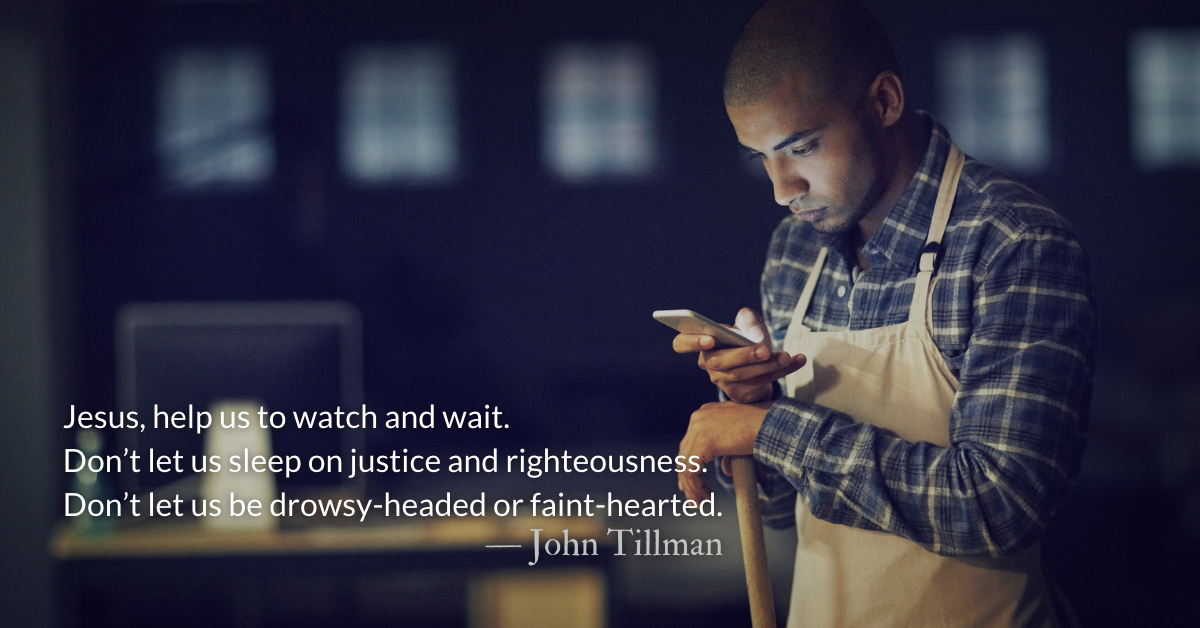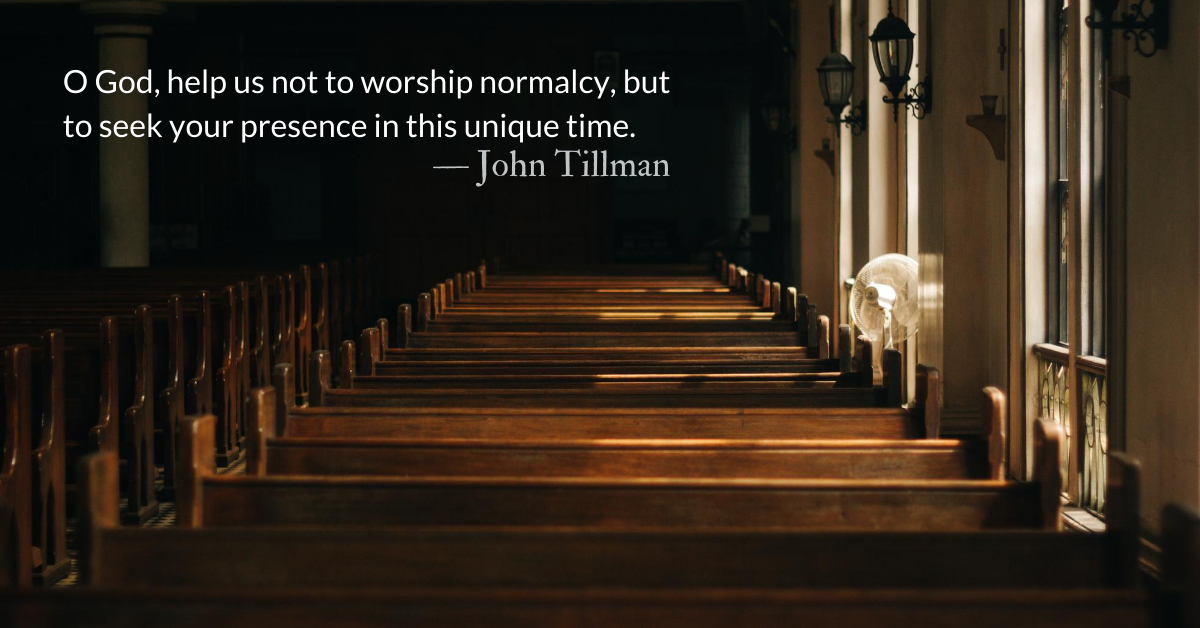Scripture Focus: Mark 13.37
37 What I say to you, I say to everyone: “Watch!”
Reflection: Watch
By John Tillman
Jesus follows the model of many apocalyptic prophecies from the Torah; he speaks about two things at once. Biblical prophecies often directly describe something happening soon and figuratively describe something in the future. Revelation, written by John, also follows this model.
This greatly complicates interpreting biblical prophecy. We must determine what is figurative and what is literal; at the same time, we must interpret what applies to the near future of the speaker, which is our past, and what may apply to our future today.
Jesus’ prophecy most directly refers to events that will happen in the near future. In 70 CE a crackdown by Rome would raze the Temple to the ground, just as Jesus described. The site of the Temple would be barren for centuries. Under Byzantine Christians, it was neglected and became a trash dump. Eventually, Muslims restored it as one of their holy sites. It swapped hands many times, being a fortress for Templars, a church, and today the location of the Al-Aqsa Mosque.
Jesus also spoke about his future return, which we anxiously await. Jesus says many similar things in this passage: watch, beware, keep watch, be on guard, be alert, stay awake, be ready. He never says, “predict.” Yet, somehow, “decoding” the exact time and manner of Jesus’ return became an irresistible quest for some believers.
Jesus’ return is not a flight we schedule in advance where we know the gate, the time, when to board, and when we will take off. It is an experience we should constantly be ready for. What we know, is that we will not know what time he will come. (Mark 13.32-33)
Rather than try to predict his arrival, we are to prepare for it. Jesus used the analogy of awaiting a returning master: “Do not let him find you sleeping.” How do we stay prepared? Jesus tells us that as well. Do not be alarmed, worried, or deceived. Listen to the Spirit, bear witness, stand firmly, and testify. Pray.
Let him find us at work. Let him find us crying in the wilderness, making his path straight, smoothing the rough places, so that all will see his glory when he comes.
Jesus, help us to watch and wait.
Don’t let us sleep on justice and righteousness.
Don’t let us be drowsy-headed or faint-hearted.
Come to us, as we make your paths straight.
Divine Hours Prayer: The Refrain for the Morning Lessons
“I will appoint a time,” says God. — Psalm 75.2a
Today’s Readings
Genesis 35-36 (Listen 9:33)
Mark 13 (Listen 4:32)
This Weekend’s Readings
Genesis 37 (Listen 4:56) Mark 14 (Listen 8:37)
Genesis 38 (Listen 4:24) Mark 15 (Listen 5:16)
Read more about The Work of Faith
Actively waiting for the return of Jesus begins with the work of faith.
Read more about Breaking the Rhyme Scheme
Christ will break this rhyme scheme. The rhythms of oppression will be rewritten.










